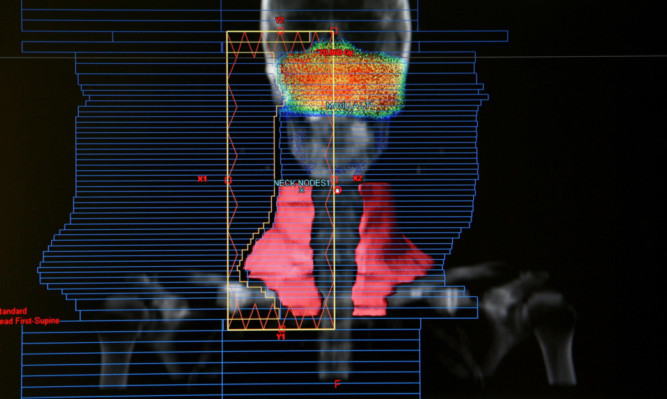More than a third of oncologists and specialist doctors treating blood diseases know of patients in Scotland moving to England to receive treatment, according to a survey.
Research carried out for the drugs company Roche Products Limited found 39% of oncologists and haematologists are aware of cancer suffers who have relocated south of the border for this.
Virtually all the 28 consultants interviewed for the survey said they believed access to cancer treatments was better in England than it is in Scotland.
A total of 96% of those surveyed felt this was the case, with 50% also believing restricted access to treatment had lowered the standard of care available in Scotland compared to the rest of Europe.
Clinicians said there were 34 drugs they would like to be able to use to treat patients which had not been approved by the Scottish Medicines Consortium (SMC).
Meanwhile almost half 46% of the doctors surveyed said they thought fewer clinicians were coming to Scotland to practise in cancer.
As well as that 7% of the consultants surveyed said they were considering no longer working in oncology as a result of restricted access to cancer treatments.
Mark Flanagan, chief executive of the cancer charity Beating Bowel Cancer, said: “It is worrying that cancer patients in Scotland are being forced to make the choice between staying at home and moving across the border to get the treatment that their doctors in Scotland wish to provide for them.
“This is about peoples’ lives and action must be taken quickly to establish a system of access to a wide range of drugs and treatments for the growing number of Scots diagnosed with bowel cancer every year.”
Mr Flanagan said almost 4,000 Scots a year were affected by bowel cancer but claimed: “Outcomes are poorer compared to other countries in the UK and Europe. More can and must be done to improve bowel cancer care for patients.”
He added: “The Scottish Government has a real opportunity to get things right by ensuring access for all cancer patients to life saving medicine. We urge the Government to do what is necessary to set the standard for how bowel cancer patients are cared for.”
In January the Scottish Government announced a new £21 million fund to help improve access to treatment for people with rare medical conditions. This will cover the cost of medicines whose routine use has been rejected by the SMC.
Dr Jason Leitch, clinical director of NHS Scotland, rejected the research and said: “The evidence base for this survey is extremely dubious. Billion-pound pharmaceutical giant Roche only surveyed 28 people and we simply don’t recognise the figures they are quoting.
“They have shown no evidence to support their claims, nor any information on the 34 drugs which they claim are freely available in England but not here.”
